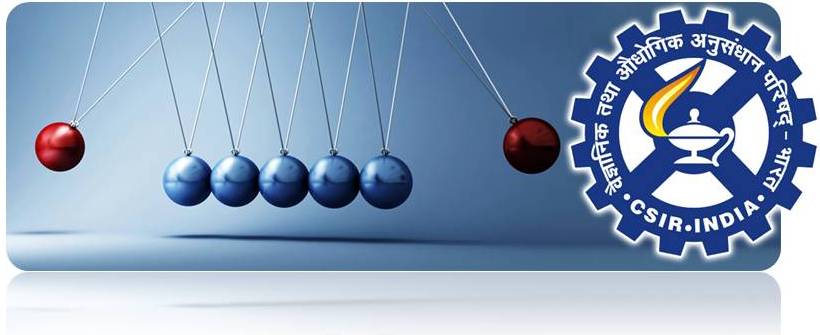If you are to come out of a NET that traps you. Stratagem.
This article is purported to be helpful towards those who take Indian “after the university” entrance exam known as NET (National Eligibility test governed by CSIR; Council of Scientific and Industrial Research) which is held twice every year.
NET for science subjects is known as CSIR-NET and arts/humanities as UGC-NET. They are conducted at different times and by different agencies.
Manmohan sir, I want to qualify net. … any suggestions ?
Find an algorithm at the end for a quicker assimilation of the strategies given here. PDF file available available.
I am assuming you will take the test in June 2018.
Solve 10 previous papers thoroughly.
Make a categorization of subject wise weightage: eg mathematical physics, quantum mechanics, thermodynamics etc.
Set yourself a good score based on what you think you can certainly achieve. Make a 15% increase and make that your target.
See your strongest subjects and make a plan which ones you want to be thoroughly prepared about so you can arrive your target.
Never attempt a question, unless you are very sure of it. Negative marks in net can ruin your chances. (By attempt I mean: select the choice)
Decide in which section you want to score how much.
In section A (total marks 30) try to achieve full marks, except a few daunting questions. Getting 22 (11 questions right, assuming no negative score) seems a good idea. In section B (20 questions in total) try as many as you would like, to comply with your target. eg if your target is 110/200 you already got 22. So lets say you think you can score 35 in sec B (10 questions right, no negative) then you have 57 by now. So rest 53 must come from sec C, which is about 11 questions right, without negative scoring. You can vary between sec B and C to fulfill a particular target.
You should take mock tests frequently. Take a previous year question paper, set yourself 3 exam like hours without disturbance and attempt the paper. Now analyse your responses, based on the answer sheet. This way you can gauge yourself properly.
Once you have solved 5 sets of question papers, you know exactly what to be expected in the exam. eg exactly what kind of quantum mechanics questions and so on.
Brush up your concepts thoroughly based on this, from good quality texts. I will give you selection of text books, in the end. Also try to solve good number of questions from these texts. When studying the text focus on the text, not necessarily on exam. So test your understanding based on chapter-end questions. Solve them yourself. If you can’t try to find if solution manual is available. Some texts have answers available, full solutions that is.
Do proper time management, eg skip difficult or lengthy answer type questions for 2nd round. First attempt what you can solve quickly. Here by attempt I mean actually solving the question and not just selecting any choice. Also attempt first, questions, where you are thoroughly prepared. Then go to what you think you can do but requires long amount of time. Then go to attempt what you might think you may not solve but give a shot. Now review your answers for any possible mistakes.
When using scribble pad make each question have a separate space, so you can easily review later, you can leave some space to each questions space, so you can add some calculations during review.
Now go onto solve more and more questions from good study materials. Not necessarily coaching materials. It could be Schaum’s series or a good text book. Keep on taking mock tests to gauge your preparedness and requirements.
Here are some text books to follow, they are my favorite and most of them are quite helpful from NET prospective as well.
A. Mathematical Physics: 1. Mary L. Boas. 2. Riley Hobson.
B. Classical Mechanics: 1. Takwale Puranik, 2. Rana, Joag. 3. Mathur 4. Gupta (the latter two include properties of matter and wave etc)
C. Modern Physics: 1. (one stop) Arthur Beiser. 2. Eisberg and Resnick (book name: quantum mechanics of atoms molecules etc)
D. Electromagnetic Theory 1. Hecht (optics book) 2. Griffith (Ed book) 3. Berkley series (author: Purcell) 4. Mahajan Choudhury (Ed text)
E. Solid State Physics 1. Ali Omar 2. Kittel 3. Beiser (mod physics text)
F. Nuclear Physics 1. Kenneth S. Krane 2. Cohen 3. Prasad 4. Gupta
G. Electronics, Digital electronics 1. author Malvino, Leach, Saha 2. RS Sedha (S. Chand) Analog electronics; 1. VK Mehta 2. Malvino Bates 3 Tayal and Tyagi
H. Quantum Mechanics: Griffith 2. Levi (applied quantum mechanics) 3. Joachain (Pearson)
I. Statistical Mechanics 1. Reif (Berkley physics course, A must for everyone) 2. Pathria Beale (Advanced level, but thoroughly descriptive)
J. Thermodynamics 1. Garg Bansal 2. Zeemansky Dittman 3. University physics (Sears, Zeemansky et al)
You can see/refer difficult texts like Arfken, Jackson or Goldstein on a need basis.
Relativity; follow that thin book Resnick and Arthur Beiser would also help.
I hope that helps.
CSIR NET (pdf file of the strategy).
Rate this:
Share this:
- Click to share on Pocket (Opens in new window)
- Click to share on Facebook (Opens in new window)
- Click to share on WhatsApp (Opens in new window)
- Click to print (Opens in new window)
- Click to share on Reddit (Opens in new window)
- Click to email a link to a friend (Opens in new window)
- Click to share on LinkedIn (Opens in new window)
- More

Leave a comment